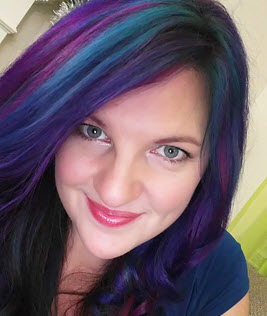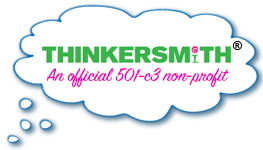
HP Developers' Portal
As a computer science instructor at the University of Oregon, Kiki Prottsman was dismayed by the attitudes and stereotypes that had developed around computers.
“There is a kind of elitism around computers and computer education,” asserts Kiki, who is now the Education Program Manager at Code.org, the organization behind the Hour of Code events taking place around the world from Dec. 7 to 11.
While attending the university, her classes were dominated by young men. They were the “smart ones” – the ones who could handle the abstractions and unfamiliar terminology that dominates computer education. Many of them had been writing their own code since before high school. Some were “digital natives” who had grown up with computers at home. They were at ease talking about operating systems, programming languages, and binary logic.
Learning through play
Kiki is also a digital native. Her father brought home an IBM 8088 when she was a little girl, and he let her play with it. He encouraged her to spend time on the computer, allowing her to learn about it through exploration. He handed her a book on Visual Basic and challenged her to figure it out. Consequently, at school Kiki became one of the two girls in her degree program coding in a sea of testosterone.
In a profession that is devoted to logic, Kiki sees some of the practices in computer education as quite illogical – the results of social conventions and unspoken biases.
“Boys tend to feel more comfortable learning about computers than girls do. Some people think you have to be brilliant to be successful in computer science. Some people think computers are scary, but I don’t see it that way. You can teach the basics of computing to people of all ages – from 5 to 105. I tell my computer science students that coding is like art – very personal and potentially beautiful.”
Founding Thinkersmith

Kiki crafted Thinkersmith’s Mission Statement with feedback from family and friends:
Our mission is to introduce all ages, races and genders to the fun, passionate and creative side of computer science and computational thinking. We strive to provide a positive, low-stress, and energetic environment where any student can safely explore their high-tech curiosities. Through these ideals, we aim specifically to increase equity in the computer sciences as we work to attract and retain girls, women and other non-traditional computer science students. We believe that computers are a tool and that they should neither replace nor hinder physical activity, environmentalism, or philanthropy.
Kiki created a set of fun, hands-on computer science activities called Traveling Circuits. Her curriculum for cyber newbies has something for every age, from kindergartners to seniors.
No computer? Go "unplugged"
Kiki realized that one of the biggest blockers to teaching computer science was that many classrooms - and even some schools - don’t have access to functional computers, so she created an “unplugged” curriculum that teaches computer principles with games and arts-and-craft activities. One of the most popular activities is Binary Baubles – making bracelets that encode the student’s initials with beads that represent ones and zeroes.
Traveling Circuits and her unplugged curriculum helped Thinkersmith receive a Google RISE Award for excellence in science and engineering in 2013. Thinkersmith was one of 10 organizations in North America honored with the award.
Joining Hour of Code
Kiki had been pushing her computers-for-everyone mission for several years when Hadi Partovi, co-founder of Code.org, launched the Hour of Code initiative. When Partovi and his team learned of Thinkersmith, they realized that Kiki’s curricula filled gaps in their program. Kiki realized that Hour of Code had the kind of global engagement and momentum that she had dreamed of. (No less than President Obama kicked off the Hour of Code in 2014.)
“I begged Hadi to offer options for classes that don’t have access to computers, but I don’t think either of us expected my unplugged curriculum to be as popular as it was. That year, nearly 10 million students participated in the Hour of Code online, and we estimate that somewhere around 1.5 million students participated in the unplugged activities worldwide.”
Seeing her vision realized
After working with both Code.org and Thinkersmith for several seasons, Kiki finally accepted an official, full-time position as Code.org’s Education Program Manager earlier this year. She is now deeply involved in planning and preparations for the Hour of Code .
In the second week of December, Kiki will join in Hour of Code events in her home town of Eugene, Oregon. Meanwhile, the Hour of Code organization will be delivering elements of her curriculum to every corner of the world.
“I have spent the better part of my career creating curricula for classes that I was warned schools would never teach. It’s amazing to look up and see just how much education is changing thanks in some small part to my headstrong persistence.”






